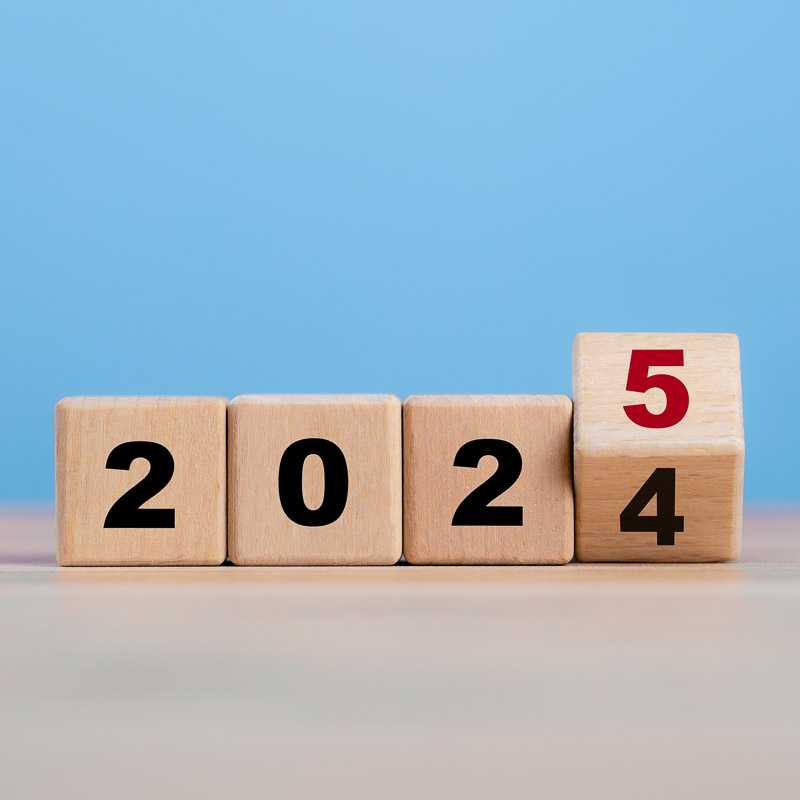

It would be an understatement to say the coming year will be one of disruption or change. The key will be how best to navigate the disruption and to identify and secure the opportunities that come from the likely turmoil. Any suggestion that the next period will be business as usual should be put on pause. Instead, business leaders should reinforce their risk preparedness and arm themselves with geopolitical assessments to secure a licence to operate no matter the industry, sector or geographic market.
Not all change brings gloom and despair; some areas are likely to see opportunities for leaps forward in growth in the midst of noise and bluster.
With so much discussion around artificial intelligence (AI), innovative technologies and their overall regulation, the incoming Trump administration and its heavy early involvement of figures from the tech world will take a divergent approach to the perceived regulatory heavy-handedness of the European Union. The intense focus and volume of financial backers in AI alone, combined with a potentially looser regulatory framework, may have profound impacts on innovation across multiple industries such as health care, finance, transportation and logistics. Global divergence in the governance of technology and innovation places Washington, D.C., Beijing and Brussels under sharp focus in 2025 as all three major blocs need stronger economic growth and a boost to competitiveness this year. There may be no better opportunity than 2025 for proponents of innovative technologies to prove the real transformative value of AI given this dynamic.
Across international trade, the approach of the second Trump administration will reshape trade alliances and force the creation of new partnerships. Old friendships may count for little in an era of using, or the threat of using, a tariff model from the early 20th or late 19th century. While the details and results remain uncertain, what is clear is the upheaval will create new trade corridors with the United States and between other international economies. It may provide as many opportunities for emerging and established economies as it will create challenges for existing partnerships.
Putting true disrupters into positions of authority, even briefly, can have far-reaching effects. The counterintuitive appointments of those who see the current international framework, the established business norms or simply the existing model of bureaucratic governance as being restrictive or harmful will generate genuine change. In the health sector, some see the appointment of Robert F. Kennedy Jr. as U.S. health secretary to be a threat while others will find common ground in his advocating for lowering drug costs and a focus on tackling the chronic disease epidemic.
The new administration’s position towards the role of NATO and its European allies may well spur a new era of long overdue European strategic responsibility, if not full autonomy, and provide a boost to domestic European defence spending and technology development. The appointment of potentially controversial leadership choices in the intelligence and defence areas may give traditional American allies cause for concern, as any “America First” foreign policy would impact existing defence commitments.
A more assertive China, more aggressive Russia and increasingly bellicose United States may drive members of the European Union (and those on its geographic periphery) to find common alignment on individual matters with all three powers, as trade-offs are increasingly required, and macro level strategic positioning becomes more unclear. Even rising nationalist groups in key European economies may find that the European Union is not such a bad place in a world dominated by larger and more aggressive power blocs.
Action on climate remains elusive, despite consistent and obvious examples of increased extreme weather. As some corporations roll back commitments and align with new political priorities, ironically the trade and economic conflicts over electric vehicles (EVs) or solar and renewable energy have generated untold volumes of EVs and home-focused energy solutions such as solar panels and heat pumps. A decade ago, EVs and solar panels were nascent products reserved for wealthier sections of society. In 2025, they are available on a mass scale at a lower price and are more reliable products for consumers than traditional forms of transport and energy.
Employees, consumers, boards and C-Suites will be exposed to the accelerating discussions around corporate values and principles. Examples point to a growing corporate retreat from existing or recently adopted principles around corporate social responsibility (CSR), diversity, equity and inclusion (DEI) or climate focused topics. Some C-Suite executives may wish to follow the political ideology of the day to insulate their business from external political pressure. However, abandoning values and principles is just as likely to inflame consumer concerns and impact retaining critical talent. In a turbulent year, it may be one change too many for far sighted CEOs.
Related Articles
Looking Ahead: A 2026 Communications and Leadership Outlook
January 27, 2026


